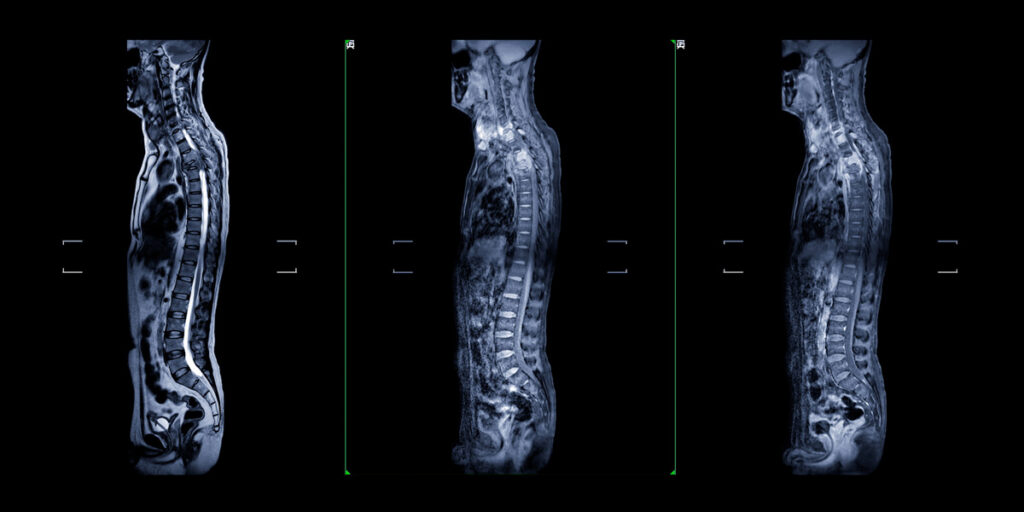What You Need to Know About MRI With Contrast
MRI scans create detailed views of structures inside your body using radio waves and a strong magnetic field. Sometimes, however, your doctor needs a more detailed view, which an MRI with contrast can provide. These scans involve an IV injection of a contrast material before the MRI begins to enchance the details of the scan.
Why is contrast material used for an MRI?
Contrast material helps certain tissues or structures in the body stand out from surrounding areas on MRI images. By changing the magnetic properties of surrounding water molecules, contrast dye enhances the appearance of organs, blood vessels, and tissues in the images. This allows doctors to see these structures more easily and helps them make accurate diagnoses or see whether treatments are working.
MRI studies with contrast can help illuminate structures and organs, including your:
- Abdominal organs, such as the bladder, colon, intestines, and kidneys
- Arteries and veins
- Brain
- Breasts
- Heart
- Lungs
- Rectum
- Soft tissues, such as muscles
- Stomach
Your doctor might order an MRI with contrast to rule out certain diseases, identify tumors or other abnormalities, or determine how well blood is flowing to or from certain organs. This type of MRI is also an effective way for doctors to get a detailed look at brain and spinal cord tumors and determine whether cancer has spread from one part of the body to another.
The safety of an MRI With contrast
It’s natural to wonder whether the contrast material used for an MRI comes with any safety concerns. Contrast material only temporarily changes the way organs and other structures appear in imaging. It doesn’t cause permanent discoloration. Your body will eliminate the material through urine or bowel movements after the imaging study is complete.
Side effects and allergic reactions are rare for all types of contrast dye, including gadolinium, the most common type used for an MRI. However, having certain allergies or medical conditions, such as kidney disease, can increase the risk of side effects.
Prior to the MRI, you will answer health questions so your technologist can determine whether you are at higher risk for side effects. Answer questions accurately so your technologist knows about allergies or medical conditions you have, as well as medications you take.
What to expect
Your physician will let you know if you need to fast or avoid specific foods or beverages prior to the scan. Leave metal objects, such as jewelry and watches, at home, and dress in loose, comfortable clothing.
After you arrive for your MRI, the technologist will help you get positioned on a moveable exam table. You will be given the contrast material before the imaging starts, usually, as an IV injection in your hand or arm. When you’re ready, the table will slide into the MRI machine. The technologist will perform the MRI at a computer outside the room, and you’ll be able to talk to him or her through an intercom. The entire process takes, on average, between 30 and 60 minutes.
Having an MRI is virtually painless, although you may feel a prick and slight discomfort when the dye is administered. The machine can be quite noisy, but you will be given headphones to wear during the scan. At AHI, you can choose your favorite music to help the time pass quickly.
What happens next?
As soon as the MRI is complete, you can go home and resume normal activities. Be sure to drink lots of water to help flush the contrast material out of your body. Let your doctor know right away if you experience any side effects, such as diarrhea, nausea, or vomiting. Although rare, severe allergic reactions, such as itching, hives or trouble breathing, may happen and require emergency care.
A board-certified radiologist will review and interpret your MRI results as soon as they are available. Your doctor will have copies of the images along with the radiologist’s written report soon after your scan.
Have a doctor’s order for an MRI scan? Request an appointment at American Health Imaging for precise, reliable results you can trust.
